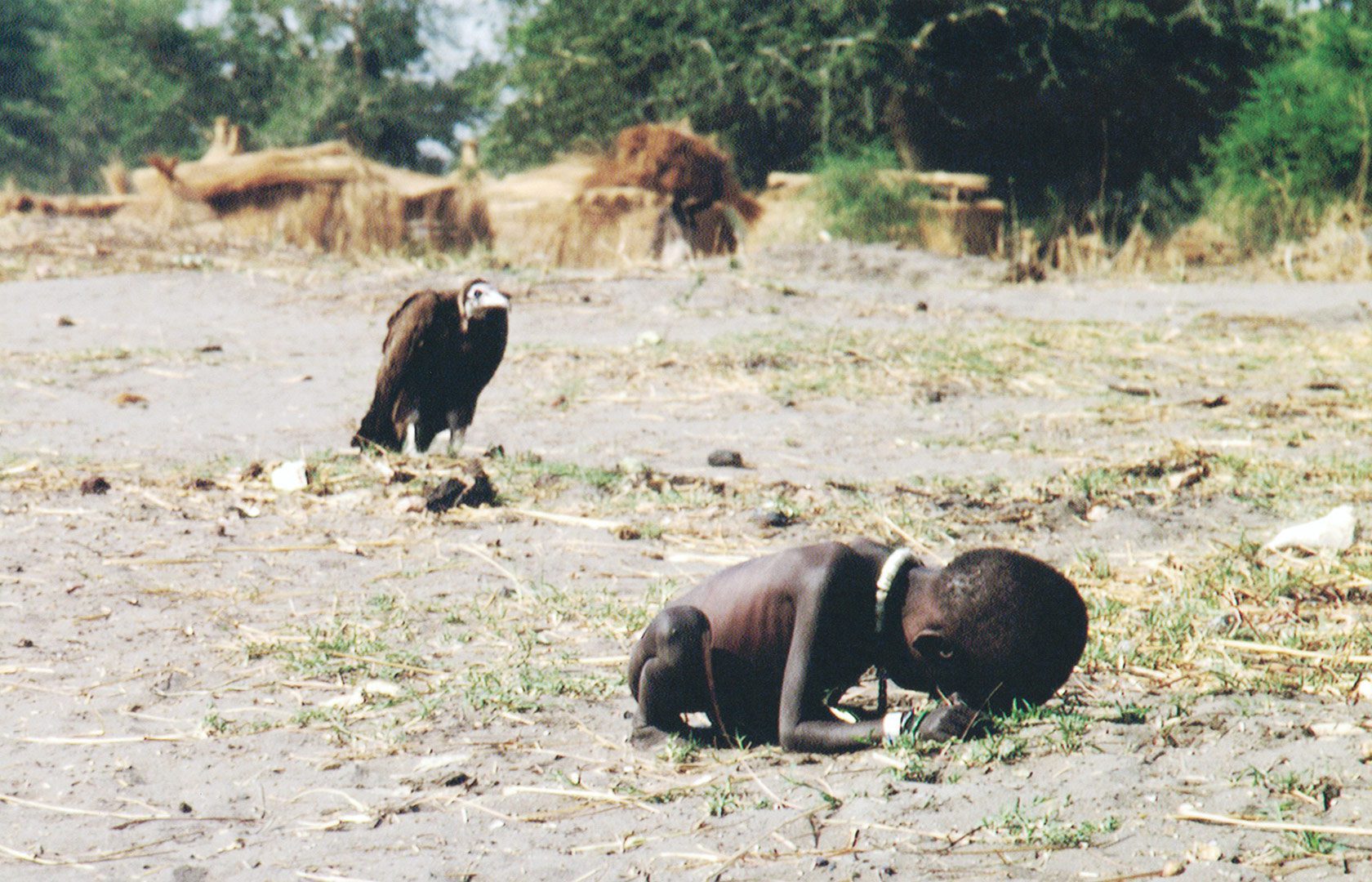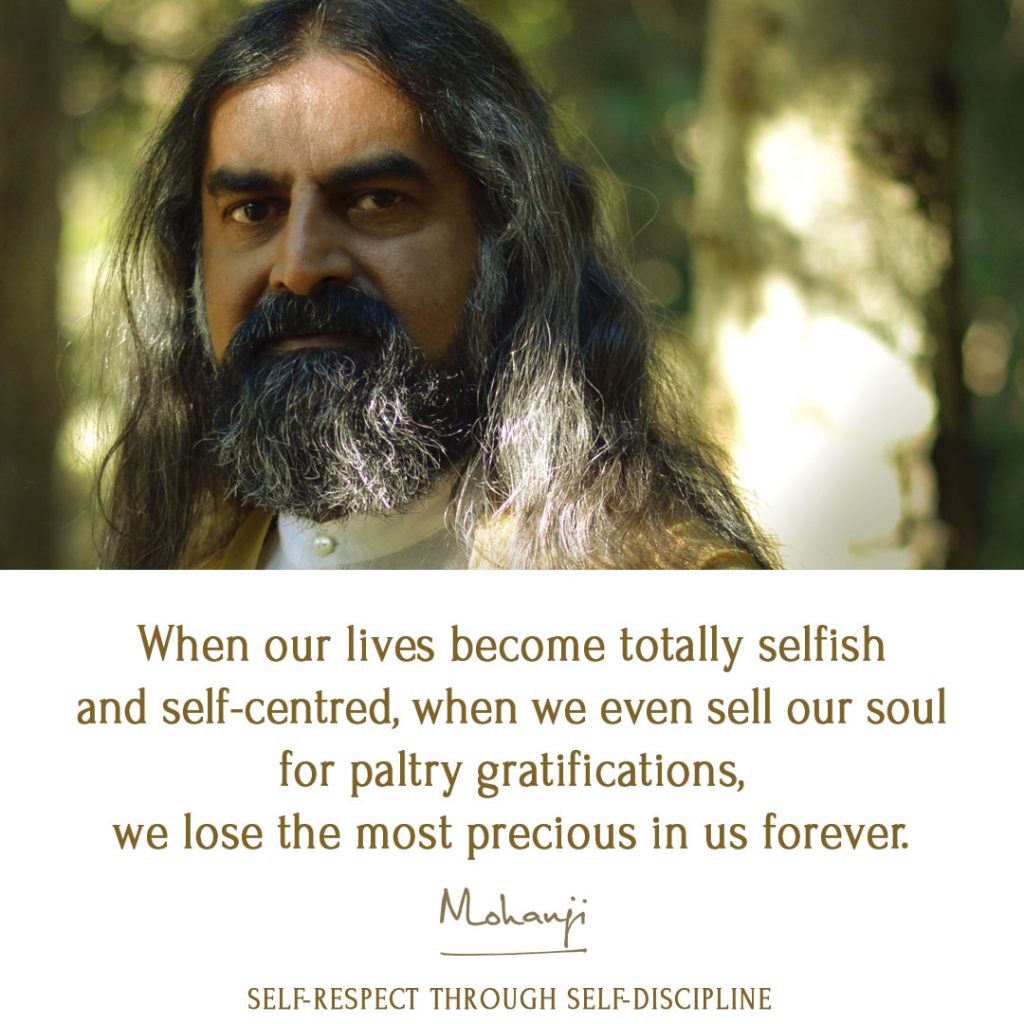Hello, my dear friends. Welcome to Mohanji Speaks.
Today we are going to talk about the goodness factor. What is the goodness factor? Goodness factor is our ability to be kind and compassionate and prioritizing it at all times. So, how is it important for us? We shall see.

One gentleman, a photographer, saw a small child totally drained of energy, lean and weak from dehydration and malnutrition, crawling to a center where they were distributing food in Sudan. And very next to this child, a vulture was sitting, waiting for the child to die so that it could eat its body. This picture is very famous; it’s available on the internet too. This photographer took the picture and left the place. What happened to the child? Nobody knows. And this picture won many a prize, many awards as a very sensitive picture. A child about to die and a vulture waiting for its death, an extremely sad picture!
In one of the programs where this picture was displayed, a reporter asked the photographer, “What did you do about this child? Did you take the child to the shelter or did you just leave her there?” He said, “I didn’t have time; I had to catch a bus, so I rushed right after the picture. I don’t know what happened to the child.” So, the reporter said, “There was not just one vulture waiting for the death of the child. In fact, there were two; one was behind the camera; he took the picture, but did not help the child!” This literally shook the photographer; it hit his conscience. It did so to such an extent that the photographer, later on, committed suicide.

Today, you can see many such vultures. All they need is a good picture. They don’t stop to help the victims and we can see that in the media, right? You can see so many cameras on eerie images; people suffering, animals suffering, birds suffering, they are all pictures of suffering. There are people behind those cameras. But do they turn around and help the victims? We don’t know. In many circumstances, probably help is not possible because of various regulations, such as government regulations, or authorities not permitting any assistance or things of that kind. That is ok; it is understandable that we can’t do anything. But there are many circumstances in which help can be offered. This ability to give a helping hand makes us a good human being.
You take the picture to show to the world that such events are happening; that’s fine. But after that, you need to stop to help the helpless. That’s where humanity comes, that’s where a person becomes a good human being. That’s where the goodness factor is displayed.

So, what we need to think about today is, “Am I a vulture or an angel?” We can all become angels; we can definitely help the helpless if we make that our priority. For that, you should get out of your houses or get out of your comfort zones and do the impossible. That will take your self-esteem to a totally different level. You will have great self-esteem; you will have great inner richness. You would have a lot of gratitude to the universe, for giving you the ability to be helpful. You will become great human beings. You will set trends; you will become a game-changer.
This is my message today. This is my food for thought for today. Are you an angel, or are you a vulture? Think it over. Look at your own past. Think about the various life situations, you have faced and ponder over how you responded.
“The world is a dangerous place not because of those who do evil, but because of those who look on and do nothing.” This is a quote by Albert Einstein. This says it all.
All of us have the potential to be angels. We are angels. Sometimes mind does not allow us to experience it, then we become vultures. I wish you the state of being an angel, always.
Lots of love. This is Mohanji for you.

Transcribed by Ulla Bernholdt
Proofread by Vidya Rajagopalan
Subscribe to Mohanji Speaks daily podcast

